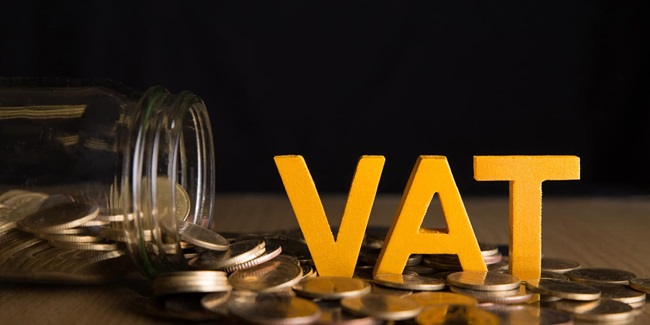The Federal Inland Revenue Service (FIRS) has revealed that Lagos State, Nigeria’s economic powerhouse, generated more Value Added Tax (VAT) revenue in August 2024 than the combined contributions of 35 other states and the Federal Capital Territory (FCT).
In a report recently released by the FIRS, Lagos accounted for an impressive ₦249.77 billion out of the ₦444.19 billion total VAT revenue collected nationwide. This means Lagos contributed more than 56% of all VAT revenue in the country for that month.
Lagos’ dominance in VAT generation is not surprising. The state is home to Nigeria’s busiest ports, numerous multinational companies, and a thriving small and medium enterprise (SME) sector. Its bustling commercial activities and high population density naturally make it the focal point for tax collections.
Rivers State came in second, contributing ₦70.54 billion in VAT revenue. While this is significantly lower than Lagos’ figure, it is still a substantial amount, reflecting the economic activities driven by the state’s oil and gas industry.
Other notable contributors include:
- Oyo State: ₦20.11 billion
- Federal Capital Territory (FCT): ₦18.17 billion
- Delta State: ₦13.09 billion
These states, along with Lagos and Rivers, are some of the economic hubs of Nigeria, housing industries, businesses, and a high concentration of consumers.
Value Added Tax (VAT) is a consumption tax set at 7.5% in Nigeria. It is applied to the value of goods and services at every stage of production or sale. Essentially, businesses collect VAT from consumers when they purchase goods or services and remit it to the Federal Inland Revenue Service (FIRS) on a monthly basis.
This tax is a critical revenue stream for the government, as it is shared among the federal, state, and local governments. The funds derived from VAT are used to finance infrastructure projects, public services, and other development initiatives across the country.
While some states like Lagos and Rivers dominate VAT collections, others lag far behind. States such as Zamfara and Imo recorded some of the lowest contributions:
- Zamfara State: ₦432.80 million
- Imo State: ₦235.41 million
These figures highlight the stark economic disparities between Nigeria’s regions. Low VAT contributions are often a reflection of limited economic activities, lower consumer spending, and weaker enforcement of tax laws.
The stark contrast in VAT contributions between Lagos and other states underscores Nigeria’s heavy reliance on a few key states for revenue generation. Lagos, in particular, carries a significant portion of the country’s economic burden, which raises questions about the fairness and sustainability of the current revenue-sharing formula.
Critics argue that states with lower VAT collections may not be motivated to increase internal revenue generation if they continue to benefit from the wealth generated by more productive states. This has fueled debates on restructuring Nigeria’s fiscal federalism to encourage states to be more self-sufficient.
On the flip side, states with lower contributions may face challenges in attracting investments or creating the infrastructure needed to stimulate economic growth. Addressing these gaps will require deliberate efforts to boost regional economies and create a more balanced economic landscape across the country.
Why Lagos Stands Out
Several factors contribute to Lagos’ remarkable performance in VAT generation:
- Industrial and Commercial Activities: Lagos is home to a wide array of businesses, ranging from large corporations to small-scale enterprises. Its role as Nigeria’s financial hub ensures that economic activities in the state are consistently high.
- Port Operations: The Apapa and Tin Can Island Ports, located in Lagos, handle the majority of Nigeria’s import and export activities, generating significant VAT revenue.
- High Consumer Spending: With a population of over 20 million people and a vibrant urban lifestyle, consumer spending in Lagos is significantly higher compared to other states.
- Strong Tax Administration: Lagos State has invested heavily in modernizing its tax system and improving compliance, making it easier for businesses to remit VAT.
While Lagos takes the lead, Rivers State plays a crucial role in VAT generation due to its oil and gas industry. The state’s petroleum companies contribute heavily to the tax pool, making it a vital player in Nigeria’s economy.
Oyo, the FCT, and Delta also stand out for their economic activities. Oyo benefits from its industrial and agricultural sectors, the FCT from government activities and services, and Delta from oil production and commerce.
For states with low VAT contributions, there is a need for strategic planning and investment to boost economic activities. Some potential steps include:
- Improving Infrastructure: Developing roads, electricity, and other infrastructure to attract businesses.
- Promoting Local Industries: Encouraging the growth of small and medium enterprises (SMEs) that can create jobs and stimulate spending.
- Tax Reforms: Simplifying tax collection processes and ensuring compliance to widen the tax base.
- Diversifying Economies: Reducing reliance on federal allocations and focusing on sectors like agriculture, tourism, and manufacturing.
The VAT revenue report for August 2024 paints a clear picture of Nigeria’s economic landscape. Lagos State’s dominance highlights the concentration of economic power in one region, while the low contributions from other states point to the need for urgent reforms to achieve a more balanced distribution of wealth and opportunities.
As Nigeria continues to navigate its economic challenges, leveraging the strengths of all regions will be crucial for sustainable growth and development. Strengthening state economies and encouraging fair competition can help reduce overreliance on a few states like Lagos, creating a more equitable system for all.
Below is the full list of the VAT generated in states and FCT across Nigeria in August 2024:
1. Lagos: N249.77bn
2. Rivers: N70.54bn
3. Oyo: N20.11bn
4. FCT: N18.17bn
5. Delta: N13.09bn
6. Bayelsa: N7.12bn
7. Kano: N4.65bn
8. Akwa Ibom: N4.49bn
9. Anambra: N4.28bn
10. Edo: N4.05bn
11. Ekiti: N3.66bn
12. Borno: N3bn
13. Kwara: N2.89bn
14. Adamawa: N2.59bn
15. Plateau: N2.58bn
16. Benue: N2.56bn
17. Gombe: N2.55bn
18. Kogi: N2.43bn
19. Kaduna: N2.03bn
20. Ebonyi: N1.90bn
21. Taraba: N1.88bn
22. Sokoto: N1.84bn
23. Osun: N1.81bn
24. Ogun: N1.74bn
25. Niger: N1.73bn
26. Yobe: N1.71bn
27. Katsina: N1.68bn
28. Jigawa: N1.59bn
29. Nasawawa: N1.47bn
30. Ondo: N1.45bn
31. Enugu: N1.08bn
32. Cross River: N1.08bn
33. Bauchi: N691.28m
34. Kebbi: N665.17m
35. Abia: N663.42m
36. Zamfara: N432.80m
37. Imo: N235.41m
Total: N444.19bn

